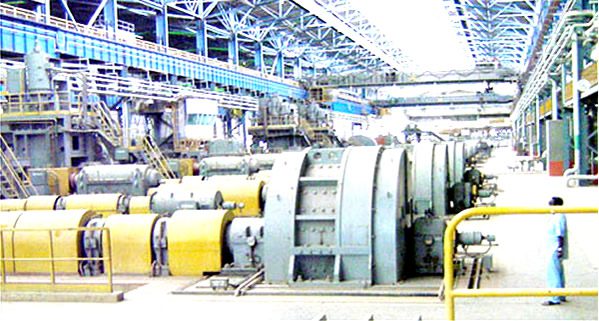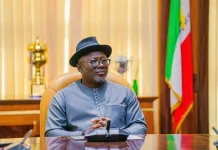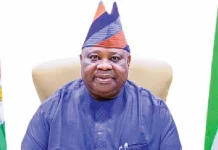It is not surprising that the Federal Government’s most recent initiative to concession the Ajaokuta Steel and Itakpe Iron Ore companies has also sparked a storm given the long history of official evasion, dubious concessions, asset stripping, litigation, and worker and host community protests. The House of Representatives and labor unions oppose the President’s (major general Muhammadu Buhari, retired) plan to grant concessions to the two businesses. The controversy is yet another chapter in the complicated story of the steel complexes, which have cost the nation more than $8 billion in 40 years with little to show for it.
Buhari attempted to further complicate matters on his way out of office after failing to take decisive action to clear the mess through a transparent privatization process to a reputable international steel sector operator for eight years. On the grounds that it is against the interests of the country, the House wants the proposal suspended. We are also concerned about the timing of the concession arrangement, said a lawmaker named Abdullahi Halims. why at this time? Why is it necessary to act quickly to sell off such important national assets in a brief period of less than six weeks?
The Kogi Heritage Protection Advocacy and the Iron and Steel Senior Staff Association of Nigeria, both stakeholder groups, have also denounced the concession agreements, for which 11 companies have submitted bids, three of which are from Russia. Additionally, the Kogi State Government filed a lawsuit against the Federal Government in an effort to scrap the plan.
The history of Nigeria’s steel industry is a case study in bad leadership, waste, corruption, and missed opportunities. The National Iron Ore Mining Company, Itakpe, and the Ajaokuta Steel Company, both in Kogi State, serve as the backbones of the complex integrated steel system, with additional steel companies dispersed throughout the nation.
While previous administrations privatized the Delta Steel Company, Ovwian-Aladja, and the three rolling mills in Osogbo, Jos, and Katsina, Ajaokuta and Itakpe remain in state hands, are idle, and continue to drain taxpayer funds without providing any benefits. Previous administrations’ attempts to make concessions to them failed miserably, preventing Nigeria from benefiting from a robust steel foundation for its economy after spending over $8 billion.
Nigerians’ suspicion of concessions, commercialization, and privatization is understandable. The Bureau of Public Enterprises acknowledged that 37% of the 142 SOEs sold between 2004 and 2018 had failed, despite the National Assembly’s claim that about 80% of privatized state-owned enterprises had failed or were failing a few years earlier. In contrast, asset sales in other nations produced “strong performance improvements, achieved surprisingly without sacrificing employment security,” as reported by the Journal of Finance.
Nigeria’s unions, who understandably worry about their jobs, contend that “national patrimony” shouldn’t be sold to shady investors, especially given that prior concession agreements haven’t been advantageous to the nation. These statements are partially accurate, but they do not sum up the requirements of the modern economy.
The liberalization of the telecom industry generated tax revenue, jobs, and foreign direct investment. The National Council on Privatization has just awarded Transcorp Power a post-privatization discharge certificate for operating the Ughelli Power Plant successfully, despite the poorly executed power privatization of 2013.
In 2003, the Olusegun Obasanjo administration began the tragic history of treacherous concessions at Ajaokuta, first going to the obscure company Solgas and then to Global Steel Holdings Limited. NASS’s later findings demonstrate that instead of making investments and increasing production, succeeding concessionaires stripped their assets. Concerned, the Umaru Yar’Adua administration confiscated the ASC in 2008 and granted GSHL the NIOM concession for the remaining nine years of the concession.
It was ineffective. Nigeria’s attempt to industrialize itself instead failed. After that, GSHL went to arbitration in a London court, where Nigeria agreed to pay the Indian company $496 million.
Read Also: Demand for phones worldwide has decreased 21%, in three years
Fair enough, the Warri-Itakpe rail line was finished by the Buhari administration, which was necessary for transporting produced steel and raw materials. Buhari traveled to Russia as a result of its pledge to revive the ASC in 2019, but it claimed that this plan was thwarted by the COVID-19 pandemic in 2020 and the Russia-Ukraine conflict in 2022.
Because the sector has stagnated since the Buhari-led junta overthrew the Shehu Shagari civilian administration in 1983, Nigeria is actually paying for the serious mistakes of its previous governments. Nigeria was poised to take a significant role in the global steel industry under Shagari.
This is a lost opportunity. The DSC was built with a $1.8 billion investment (at a 60 kobo to $1 exchange rate), but was reportedly sold for $30 million. The rolling mills are dead right now. Nearly all of the auto assembly plants that were supposed to rely on domestic steel producers have closed.
Nigeria has failed on every level. In addition to the $496 million fine, the government has been allocating roughly N3.5 billion annually for salaries to idle ASC staff since 2016. The third and fourth quarters of 2021 saw Nigeria import iron, steel, and metals worth N837.76 billion.
In contrast, India, the second-largest producer in the world, shipped 6.7MT in 2022–2023, per Reuters.According to Statista, in 2021 there were 308,675 workers in the sector across 27 EU countries.
According to the World Steel Association, global crude steel production will fall to 1.87 million tonnes or 4.2% in 2022, but several nations that started the journey with Nigeria finished their own projects within a decade. These include Argentina, Brazil, Brazil, Egypt, South Africa, India, Iran, Venezuela, Saudi Arabia, and Venezuela. Egypt, Libya, and South Africa held the top three positions in Africa, where 1.1MT was produced in 2022.
The new administration should work with the NASS, the BPE, the NCP, host state governments, unions, and host communities to conduct an extensive review of the industry in order to save it.
The government will stop paying salaries for redundant workers, stop importation, create jobs, collect income taxes, and save on foreign exchange, which are all significant benefits that have made outright privatization the global trend.
The government of Nigeria must abandon the notion of making yet another concession—the only workable choice is an outright sale.It should stay away from the mistakes made in the past that gave privatization a bad reputation.
Join Television Nigerian Whatsapp Now
Join Television Nigerian Facebook Now
Join Television Nigerian Twitter Now
Join Television Nigerian YouTUbe Now





